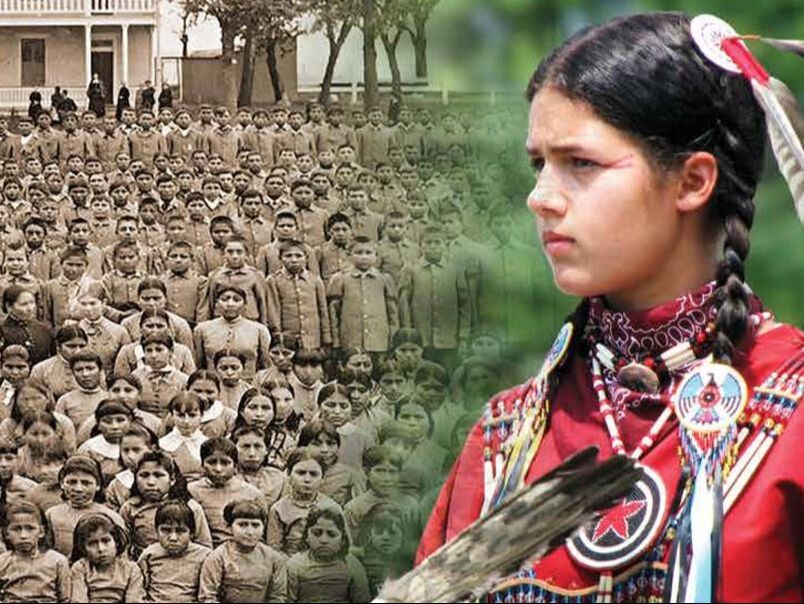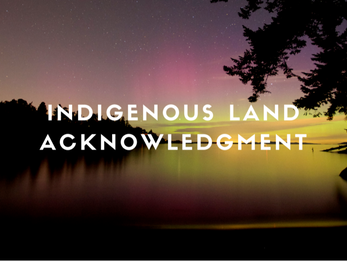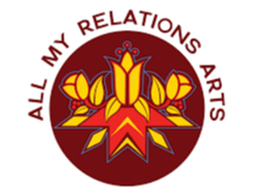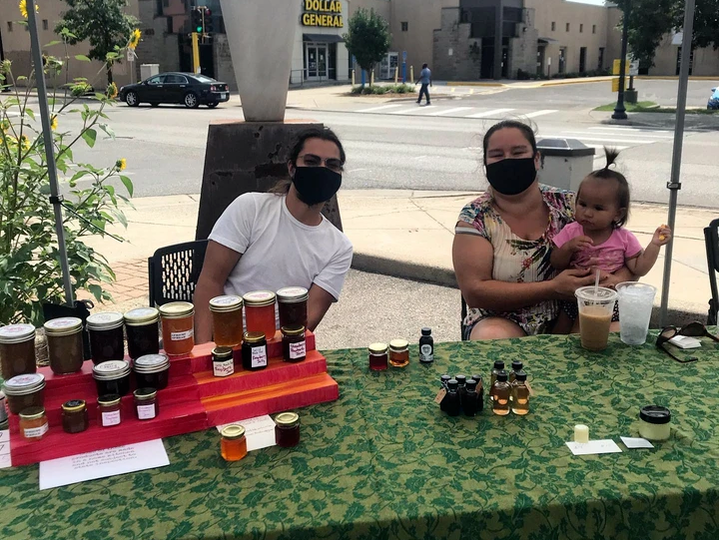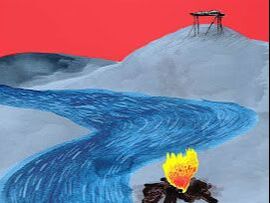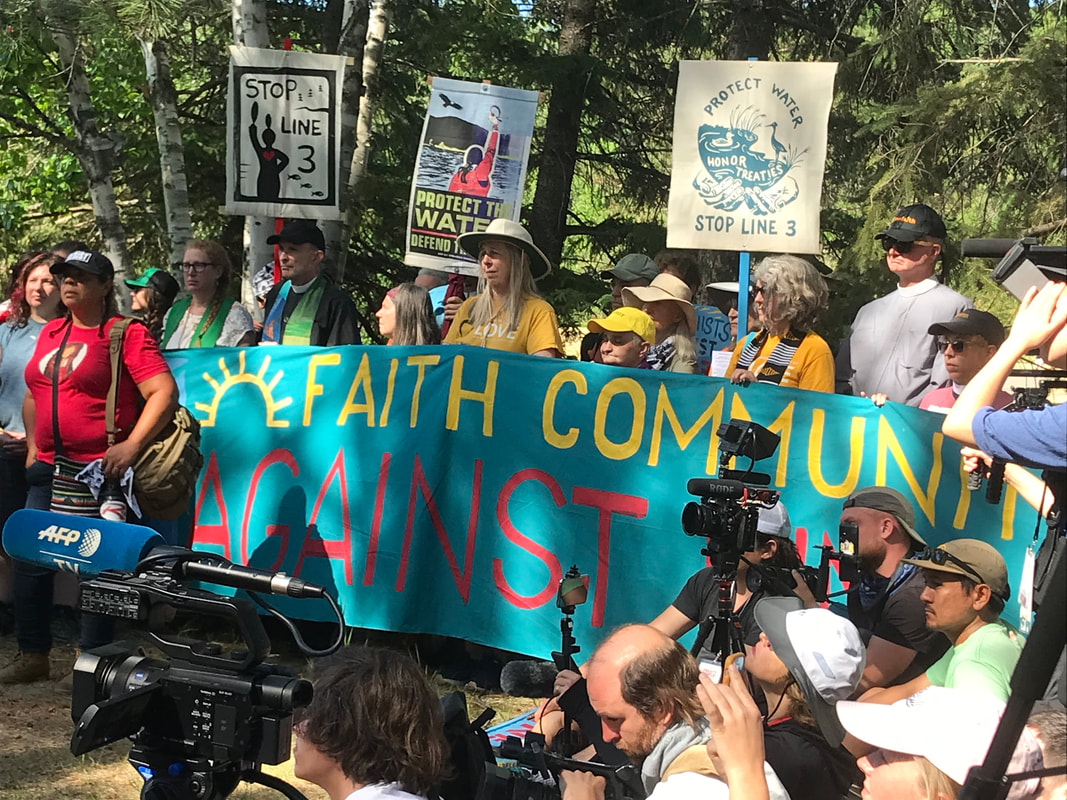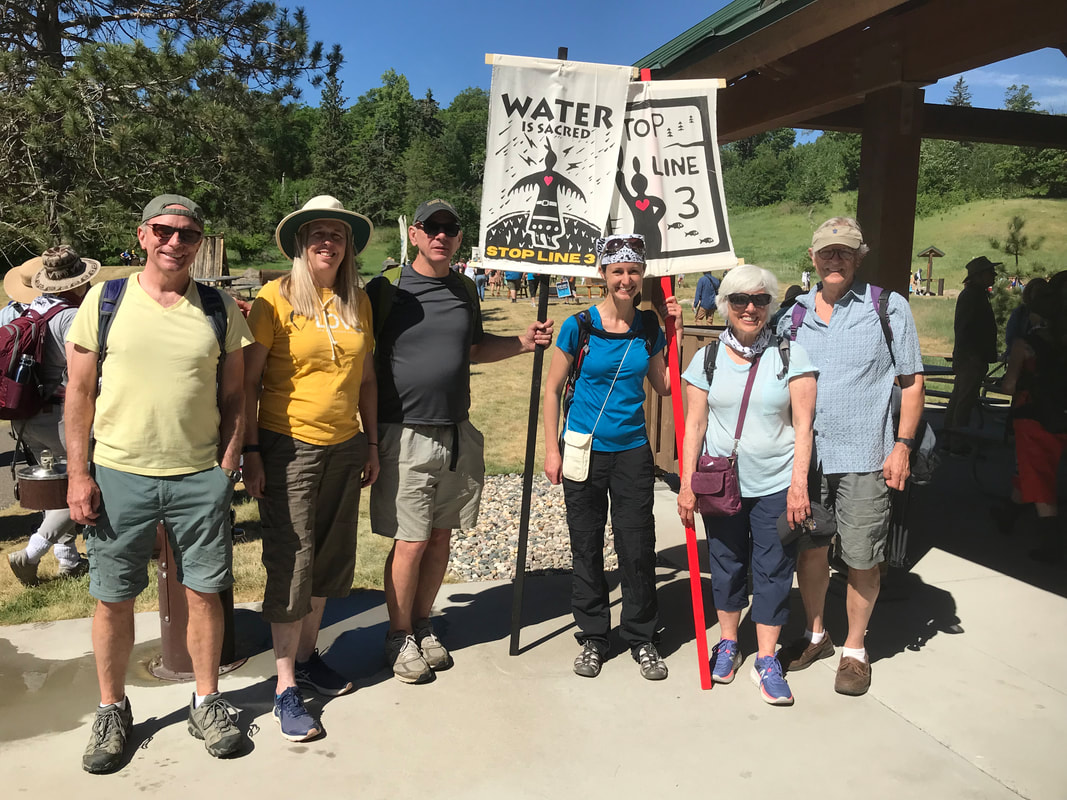|
Beloved Community Communications Team The “Honoring Water Protectors Discussion” held on December 1, 2021, in the Sanctuary at Unity Church and livestreamed on YouTube featured two remarkable water protectors: Sharon Day, executive director of The Indigenous People’s Task Force and leader of the Nibi Walk movement, and Tara Houska, an attorney, as well as environmental and Indigenous rights activist. Photographer John Kaul was inspired by the work of Indigenous and these two remarkable women. His work can be seen in the Eliot Wing photo and story exhibit, and he will post photos from the show on his Facebook page: www.facebook.com/john.kaul. We were inspired by the water protectors and their deep respect for the earth and wanted to share what they told us about how you can help. Ideas on How You Can Help from Tara Houska and Sharon Day:
Learn about the Honor the Earth organization. Tara Houska is the National Campaigns Director. Pull down the “Action” menu for how you can help. Reshape your relationship with nature. Think about how everything you consume comes from nature, that everything around us, including our bodies, is of the earth. Connect to the idea that water and the earth are not resources to be consumed but a living thing with spirit that is endangered in Minnesota. Contact Gov. Walz: Drop the charges against Line 3 activists. Minnesota Public Radio reported in September 2021 that nearly 900 people have been charged, most with misdemeanors but some with arbitrary and escalated felony and gross misdemeanor charges. Call Minnesota Gov. Tim Walz and ask him to stop infringement on first amendment rights to peaceful assembly and to protest, and drop the charges against Line 3 activists: 651-201-3400, and/or tweet Gov. Walz: @GovTimWalz, #DropL3Charges Donate to the Line 3 Rapid Response Campaign. The Center for Protest Law & Litigation is administering a fund to subsidize and support legal costs for people arrested in opposition to the Line 3 pipeline. If you prefer to pay by mail, write a check with “CPPL/Line3” in the subject line and mail to: Partnership for Civil Justice Fund 617 Florida Ave, NW, Washington DC, 20001 Protect the Boundary Waters and water in Northern Minnesota from sulfide mining. For information on the legal case against PolyMet to prohibit this dangerous form of mining and to see what you can do, visit the Minnesota Center for Environmental Advocacy. To stay abreast of the community outreach teams working on these issues at Unity Church:
0 Comments
Becky Gonzalez-Campoy, Beloved Community Communications Team
A year ago this month a local storyteller planted the seed for what is becoming Unity’s Indigenous Justice Community Outreach Ministerial Team. Rev. Jim Bear Jacobs, a member of the Stockbridge-Munsee Mohican Nation and cultural facilitator working to raise public awareness of Native American causes and injustices, joined members of Unity Church for a conversation about restoring broken trust and congregational approaches to reparations with Indigenous Peoples. His story centered around his grandmother’s boarding school experience, one that robbed her of both her culture and her voice. The U.S. government funded more than 350 boarding schools across the country during the 19th and 20th centuries and they were often run by churches, including at least one with ties to the Unitarian denomination. Rev. Jacobs wrapped up his talk with a call to action, outlining three areas congregations should consider if committed to providing reparations to the Native American tribes: 1) help local Dakota and Ojibwe communities to reclaim their language and culture; 2) develop a meaningful relationship with members of the local Native American community through spiritual life exchange; 3) create a pathway to return the land upon which Unity sits to its rightful owners. He cautioned that these steps will take years to achieve. First, we must restore trust. Many of us emerged from Rev. Jacob’s presentation ready to go to work, and came together to take action. In the months since then — and in spite of Covid-19 limiting factors — we have begun to build a solid foundation upon which we can begin to tackle the charges set forth by his call to action. We began preparation last spring to submit a Community Outreach Ministry Team application to Unity’s Executive Team in the coming months, knowing that we must connect vocational calling, spiritual practice, and thoughtful planning to make a real difference. Among the many reasons our members cited for working on behalf of Native American justice is that this group is often overlooked in antiracist advocacy. Their sheer lack of numbers keeps their voices largely unheard. We want to change that. We collect and send out monthly alerts about Native American cultural events and opportunities to volunteer or support Native-owned businesses. We hosted a Wellspring Wednesday presentation by the Native American Boarding School Healing Coalition (NABS) in May 2021, an educational event to encourage congregational learning about the traumatic impact of boarding schools on Native American children and their families. We arranged for one Sunday offering to go to support NABS. And thanks to church member James Oberly, retired history professor from University of Wisconsin-Eau Claire, we provided NABS with information about the school sponsored by the Unitarians to add to their research database. Our current Indigenous Justice team brings together many talents and connections to other organizations and Community Outreach Ministry Teams such as the Minnesota Multi-Faith Network, Minnesota Unitarian Universalist Social Justice Alliance, United Theological Seminary, and Unity’s Act for the Earth Team. In building these relationships, so much of our work intersects. We invite those committed to Native American reparations to take the next step and join us as we continue to build our Indigenous Justice Community Outreach Team and seek community partners. For more information, contact Becky Gonzalez-Campoy (beckgc83@gmail.com) or Rev. Shay MacKay (shay@unityunitarian.org). For additional information about Indigenous justice work, see these resources: By Jean Hammink On June 5-8, 2021, indigenous leaders in northern Minnesota called treaty people everywhere to gather on the White Earth Reservation to convince President Biden to honor treaty rights and stop the Enbridge Line 3 pipeline. Over 2,000 people from around the country answered the call and showed up for the four-day Treaty People Gathering. The term “treaty people '' was intentionally used to remind us that as citizens of the United States, we all have a responsibility to uphold the treaties our government has made. The pipeline will run through the treaty lands of four Anishinaabe tribes (White Earth, Red Lake, Leech Lake, Fond du Lac). Indigenous leaders organized this gathering after failing to stop the construction after seven years of legal battles and months of on-the-ground protest. To make a bold statement, the event enabled participants to engage in different levels of “direct action,” meaning acts of civil disobedience to delay or shut down construction, like blocking access to the construction site and getting onto construction equipment. The Stop Line 3 Campaign to Protect Treaties, Water and Climate became a priority for Unity’s Act for the Earth (AFE) community outreach ministry team in January 2020. The Treaty People Gathering called the AFE team to a higher level of commitment and action based on our commitment to “advance justice, wholeness, and equity for people, our Earth, and all life on it,” a Unity Ends Statement. Twelve people from Unity Church, ages 23-80, responded by attending the Treaty People Gathering. Claire Cooke was one of those people and she shares her reflections in the piece below. Photos by Jean Hammink Line Three – Let Us Have Hope
A Reflection from the Treaty People Gathering by Claire Cooke That day, the sun beat down hot. The sky was blue. Voices rose in chant, and song, and prayer. There was power, solidarity, and hope by the river. Let me back up and tell you where I was. On the beautiful, sunny morning of Monday, June 7, 2021, I stood on a bridge just above the Mississippi River in northern Minnesota as part of the Treaty People Gathering. This gathering was a direct action organized by indigenous women leaders who have been fighting on the front lines to protect treaty rights and the water. There, not far from the headwaters, the thin band of water below us could hardly be recognized as the rushing river it would become only a couple hundred miles south. But it was beautiful, clean, and slated to be crossed by Canadian oil company Enbridge's tar sands pipeline, Line 3. Line 3 is a “replacement” pipeline project that stretches across Canada, Minnesota, North Dakota, and Wisconsin, with 337 new miles of pipe destined for Minnesota alone. It is a pipeline that threatens over 200 bodies of water and their ecosystems, with its 20 river crossings. A pipeline that would slow our transition to renewable energy and worsen climate change, creating the greenhouse gas equivalent of 50 new coal power plants. A pipeline that violates treaty rights, and will result in more missing and murdered indigenous women. A pipeline that would leave the old pipeline that it is “replacing” to rot in the ground. That day, I, along with 12 other individuals from Unity Church–Unitarian and over 2,000 others, stood united against Line 3 as treaty people. In the United States, treaties, in conjunction with federal law and the constitution, make up the “supreme law of the land.” In the process of becoming a nation, the U.S. entered into many treaties with the native peoples of the Americas to acquire the land where we now live. When such treaties were signed in Minnesota between the U.S. government and the Ojibwe and Dakota peoples, these indigenous peoples retained many of their rights such as the right to hunt, fish, harvest wild rice, and perform spiritual practices on these lands. Over the course of U.S. history, many of these treaty agreements and the rights therein have been, and continue to be, broken. This is true with Line 3, where the pipeline threatens many treaty rights, especially the Ojibwe’s sacred practice of wild rice harvest. Treaty agreements were made between two parties: the ancestors of today's native peoples and the ancestors of many U.S. citizens. We, descendants (whether through a direct bloodline or through the inheritance of this government as U.S. residents) must now collectively honor and uphold these treaties. The Treaty People Gathering showed us that this burden rests not on one party, but on all of us, as we are all treaty people. As we gathered as allies in the days leading up to June 7, we learned about our inheritance of these treaties, about our rights, and our obligations from indigenous leaders. Then, on the 7th, we acted to uphold our end of the treaty, supporting indigenous leaders as they exercised their treaty rights and asking others, including President Biden, to honor these treaties. I have heard many times from those around me that it's hard to be motivated, that the pipeline probably won't be stopped, so there is not really a point in acting. I agree, it is discouraging to see the Minnesota Court of Appeals uphold the Public Utilities Commission’s approval of Line 3, and the Biden administration’s refusal to revoke the federal permits given to the project through the Army Corps of Engineers. Yet, this is where I ask you to have hope. The ability to lose hope, to step away from a fight unimpacted, and the option to walk away at all, are privileges. Those of us unlikely to suffer the consequences are able to lose hope when the fight is long, hard, sad, uncomfortable, inconvenient, or just too time-consuming. Those with privilege have the option to lose hope. On the other hand, the luxury of losing hope isn’t available to those most impacted, those whose way of life is threatened, and those who fear for family and friends. For them, losing hope is so much more than being sad or feeling defeated - it is threatening to their safety, their wellbeing, their way of life. The path of hope, the one that asks us to steadfastly fight the injustice we see in the world, will be a trying path, but it is also the path that Unitarian Universalism asks us to walk down. Luckily this is not a path we are asked to walk alone. We are called together to support one another and hold each other accountable, as we sweat, fumble, and rejoice in this work. Together, let us have hope. To join the Line 3 movement and find out what you can do to help, please visit https://www.stopline3.org/, https://www.mnipl.org/take-action/pipelines/, or contact Act For the Earth’s at UnityActfortheEarth@gmail.com. |
Topics
All
Beloved Community ResourcesUnity Justice Database
Team Dynamics House of Intersectionality Anti-Racism Resources in the Unity Libraries Collection Creative Writers of Color in Unity Libraries The History of Race Relations and Unity Church, 1850-2005 Archives
May 2024
Beloved Community Staff TeamThe Beloved Community Staff Team (BCST) strengthens and coordinates Unity’s antiracism and multicultural work, and provides opportunities for congregants and the church to grow into greater intercultural competency. We help the congregation ground itself in the understanding of antiracism and multiculturalism as a core part of faith formation. We support Unity’s efforts to expand our collective capacity to imagine and build the Beloved Community. Here, we share the stories of this journey — the struggles, the questions, and the collaborations — both at Unity and in the wider world.
The current members of the Beloved Community Staff Team include Rev. Kathleen Rolenz, Rev. KP Hong, Rev. Lara Cowtan, Drew Danielson, Laura Park, Lia Rivamonte and Angela Wilcox. |
